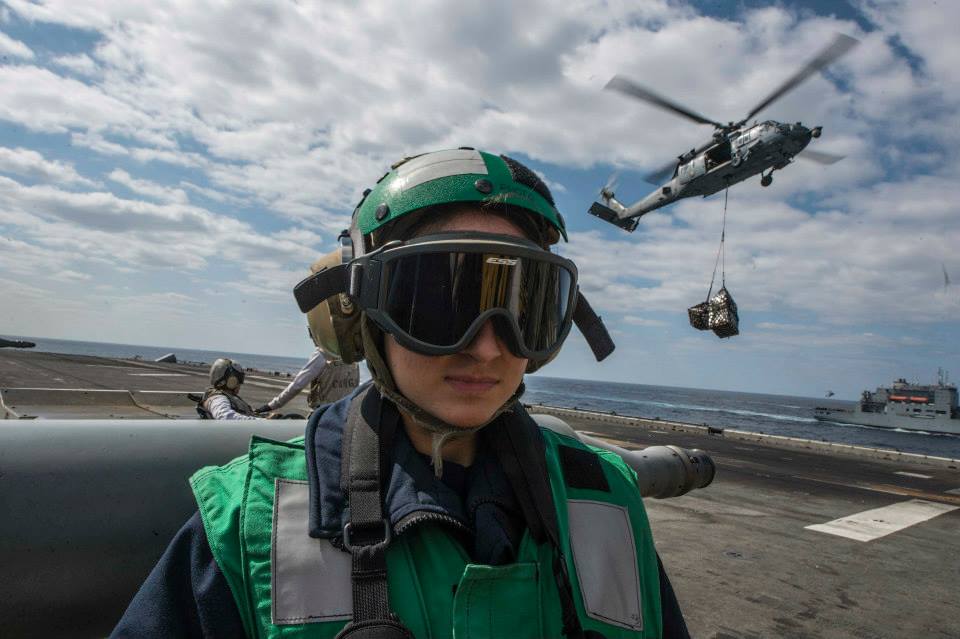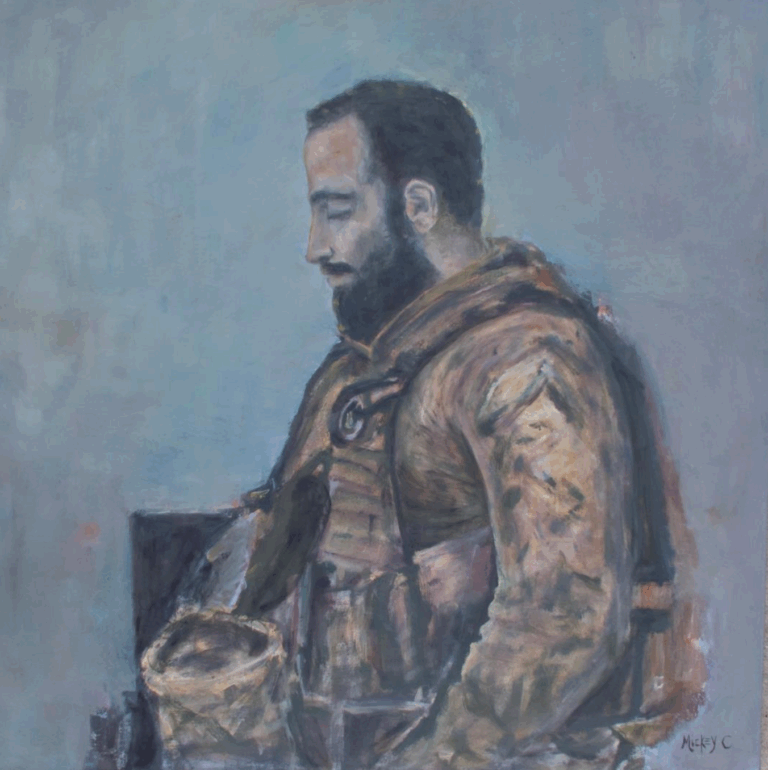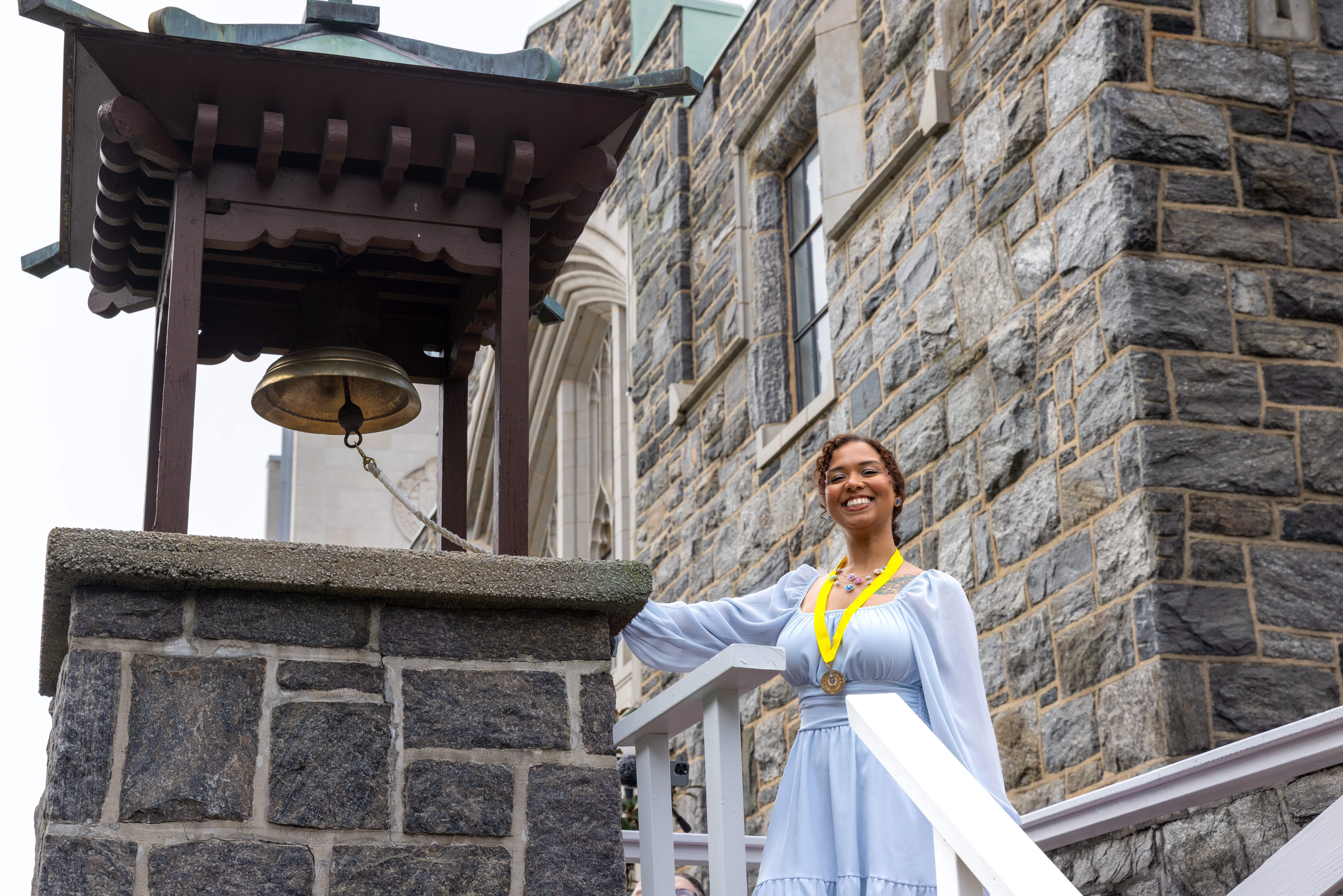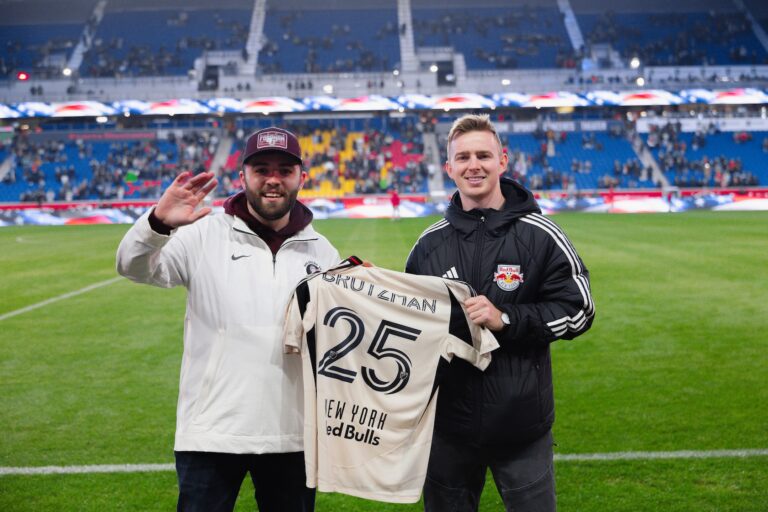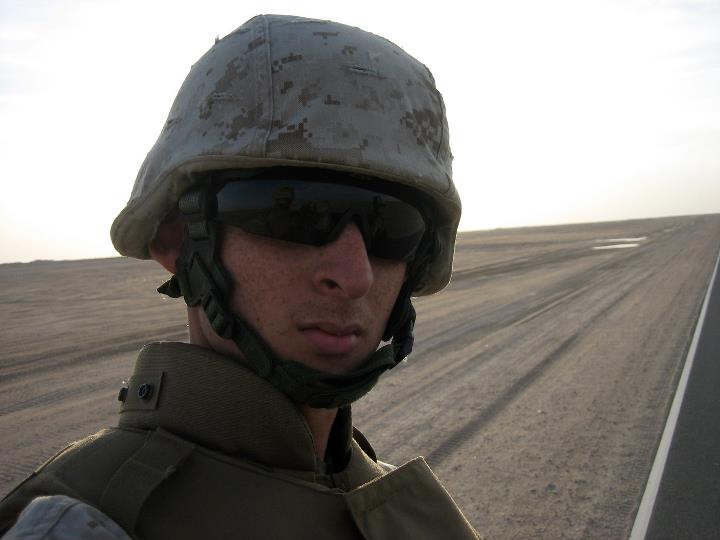Navy Veteran Found Her Voice—and a Career—Through Fordham
Veronica Mammina didn’t take the traditional path to college—and she didn’t want to.
A Native New Yorker, she joined the U.S. Navy at 19, inspired by her Uncle Louie, a Korean War veteran known for his vivid storytelling. But the real spark came during a train ride, when she spotted a military ad: a helmeted photographer capturing ships from a helicopter above the ocean.
“That moment struck me deeply,” she said. “I thought, ‘That’s what I want to do.’ And I did.”
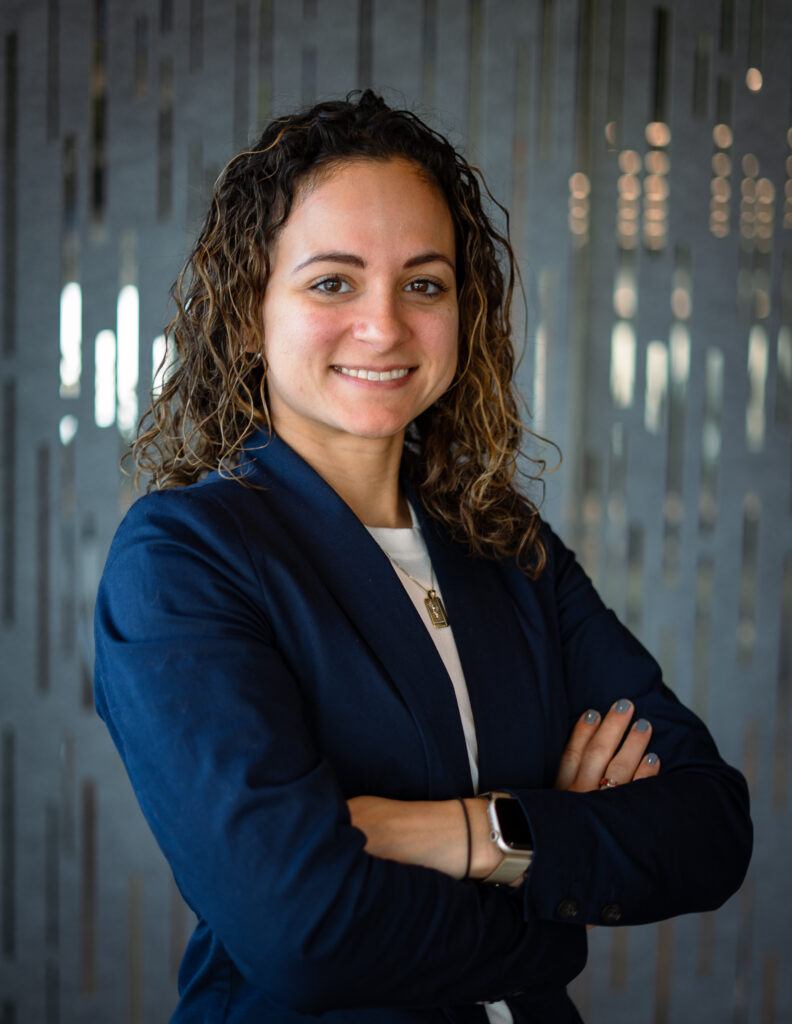
Mammina served seven years in the Navy as a mass communications specialist, including deployments aboard the USS Boxer, where she gained deep technical skills and invaluable experience—then returned home with an important question: What comes next?
“I anticipated finding a job would be difficult, so I committed to school full-time to rebuild my sense of community,” she said.
For Mammina, Fordham stood out—not just for its academics, but for how it treated veterans.
“After carefully comparing three well-known universities, I chose Fordham because it accepted nearly all of my community college credits and acknowledged the extensive training and experience I gained over seven years in the military,” she said. “I also took night classes during shore duty, and Fordham recognized that effort.”
She graduated in 2020 with a degree in Communications and Media Studies. Today, she serves as North American communications manager at Kuehne+Nagel Inc., one of the world’s leading logistics companies, where her military background, academic training, and personal resilience all come into play.
But her transition into campus life wasn’t seamless.
“Still, I struggled socially. I didn’t know how to fit in again,” Mammina said of her first days at Fordham.
That began to shift when she connected with Fordham’s student veterans chapter, and through music.

“As a hobby, I invested in music production software and taught myself how to produce songs and mix music just to keep busy and have fun—it was my creative outlet,” she said.
In time, what started as a creative distraction became a source of strength.
“Over time, I stuck with it and was reminded that the music could be healing,” she said.
But stepping into civilian life required more than creative expression—it meant learning how to care for herself without the rigid structure of military service.
“I had to relearn how to dress and ease the mental pressure while staying motivated,” Mammina said. “Veterans are often praised for our drive and discipline, but those traits can lead to burnout. Finding a balance has been one of the hardest lessons.”
The Post-9/11 GI Bill® and Yellow Ribbon Program gave her the stability she needed to succeed.
“None of this would have been possible without the Post-9/11 GI Bill. Without it, I likely wouldn’t have been able to complete my degree due to financial constraints,” she said. “The ability to focus on school full-time and receive a housing allowance was a game-changer; it truly made all the difference.”
Mammina graduated during the height of the COVID-19 pandemic, without the cap-and-gown send-off many envision. But for her, that wasn’t the point.
“It was never about the photo. It was about the intrinsic reward of finishing something I set out to do,” she said. “Despite the challenges, including a global pandemic, I kept going. That sense of accomplishment is something I’ll always carry with me.”
She’s continued pushing forward—even in the face of personal grief.
“Since graduating, I’ve faced the emotional and physical challenges of reintegrating into civilian life. Still, I raised my hand for every opportunity I could,” Mammina said. “I worked hard, even while grieving the loss of my father in 2021, and a close friend/shipmate, Tanya, in 2020, all within less than a year after graduation. I remember working on production shoots, masked up, quietly crying behind the scenes. That grief hasn’t disappeared, but I’ve learned to honor it and take time to process it in healthy ways.”
Today, her purpose remains rooted in service, just through a different lens.
“My goal remains the same as it was in the Navy: to impact those who feel lost or not good enough positively,” she said. “I know what it’s like to have low confidence sometimes and how powerful it is to rebuild it.”
“I also believe in the basics—being on time, working hard, and staying focused is the key to anything. Consistency is everything.”
Her advice to fellow veterans considering Fordham?
“Get involved on campus and connect with people,” she said. “You’ll be amazed at how much you can learn from others. Fordham is a true melting pot, and the relationships you build here can be incredibly special.”
About the Office of Military and Veterans’ Services at Fordham University: Fordham University’s Office of Military and Veterans’ Services (OMVS) supports veterans, service members, and military-connected students as they transition from military life to college and into professional careers. Through personalized support, benefit navigation, career development, and a strong community network, OMVS ensures student veterans thrive academically, socially, and professionally. As a proud Yellow Ribbon Program participant, Fordham is committed to honoring those who served by investing in their success, on campus and beyond.


